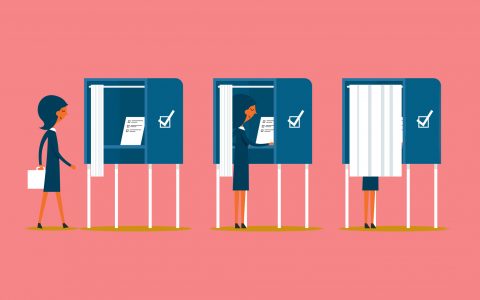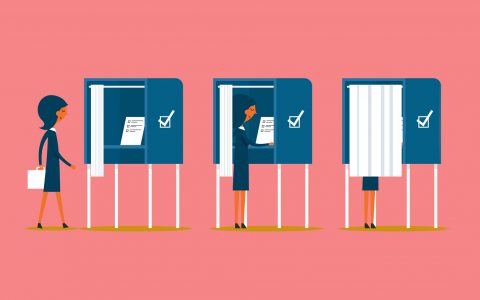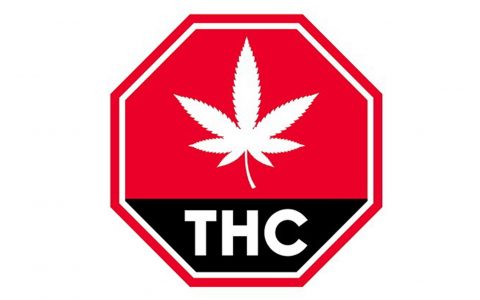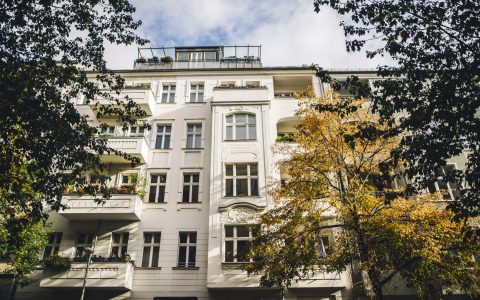Nearly six months into legalization, provinces across Canada are busily trying to increase access to adult-use cannabis (and the tax revenues that come with it).
Ontario’s 25 winners of the private cannabis retail lottery are hustling to get their stores ready by April 1; Nova Scotia, responding to tepid online sales, is planning to open more Crown cannabis stores. British Columbia is slowly widening its number of privately owned cannabis retailers, while the Yukon is shifting towards a private retail model and announced last week the territory is taking applications for retail licenses.
In Quebec, however, cannabis news has revolved around the newly elected government’s plans to open fewer stores than planned, raise the age for cannabis users, and ban cannabis smoking and vaping in public places.
The conservative-populist Coalition Avénir du Québec (CAQ) rose to power last October with 37.4% of the popular vote—enough to deliver them a majority government, under which they expected to set their legislative plans in motion quickly.
The CAQ’s Cannabis Vision
From the beginning of the discussion about legalization, the CAQ has adamantly stressed they would take a “hard line” against anything that “normalizes” cannabis.
One of the government’s first plans was to overhaul the provincial Cannabis Regulation Act passed by the outgoing Liberal government. Though that legislation was already Canada’s most stringent set of laws around legal cannabis, the CAQ believed they had gone nowhere near far enough.
Throughout the electoral campaign, the CAQ promised it would raise the age of consumption from 18 (the same as for alcohol and tobacco) to 21, would ban cannabis smoking and vaping in public places including sidewalks and parks (without extending the same ban to tobacco), and would force the government-run Société Québécoise du Cannabis (SQDC) stores even farther from universities and colleges.
One problem for the CAQ is the enormous popularity of cannabis in Quebec. By late January, Quebeckers had purchased 35% of Canada’s legal adult-use products.
“Young people from 18 to 21 will go on the black market to buy cannabis,” said then CAQ leader (now Quebec Premier) François Legault, “but I don’t want, as premier of Quebec, to send the signal that it’s normal to consume cannabis below the age of 21. […] It’s terrible what cannabis can do to youth.”
Within days of the CAQ’s election in October, the government asked Ministry of Health staffers and the Quebec Institute of Public Health for research to justify the party’s plan to raise the age of consumption from 18 to 21. Experts, however, delivered the same research they had given to the outgoing Liberal government—they recommend the age remain 18. This response was not well received by Quebec’s new government.
In December, the second bill the CAQ tabled upon coming to power was Bill 2, the act that would update cannabis legislation to meet all the CAQ’s goals (higher minimum age, no public use, wider buffers around universities and colleges). At the time, Premier François Legault said, “I want to send a very clear message to young people. “Consuming cannabis is dangerous. It can cause serious problems like schizophrenia. So please, don’t consume it.”
Legault and the CAQ were not alone in their concerns: a majority of Quebeckers polled in November supported raising the age to 21, while the Quebec Federation of Medical Specialists supported the bill, saying in a statement, “any measure to push back the age of first cannabis consumption is favourable to the health of young Quebeckers.”
Though Legault and the CAQ seemed to have grasped by November that some aspects of their plan went farther than most Quebeckers wanted it to. Quebec is the only province in Canada to set a maximum allowable possession amount per dwelling (150 grams), and while the CAQ campaigned on a promise to cut that down by 90% to 15 grams, that provision had disappeared by the time Bill 2 reached the National Assembly.
Health Minister Carmant: Missteps and Misspeaking
Challenged during a radio interview by a host who noted that alcohol and tobacco were significantly more harmful to youthful users than cannabis, Health Minister Lionel Carmant said he was open to raising the age of use to 21 for those substances as well. That suggestion did not sit well with François Legault, who appeared in the media within two hours saying, “We have no intention to change the age for alcohol.” Carmant shortly saw the light on the issue, adding later in the day, “Let’s deal with cannabis first.”
In mid-December, Carmant puzzlingly tweeted that his government had an additional $25-million for cannabis “prevention, education, and intervention for youths aged 6 to 21”—which would double the $25-million already available in the Cannabis Prevention and Research Fund created by the Liberal government. (Those funds alone must be spent by the end of the fiscal year in March 31.) Carmant’s attaché clarified, “There’s certainly an intention,” but the promise was not “tied 100%” [presumably to Carmant’s stated goals]. That explained why the additional $25-million commitment did not appear in the government’s economic update, the party’s financial framework, or the recently tabled Bill 2. Quebec’s Treasury Council confirmed Carmant never requested the additional funds, and the next day Carmant was forced to retract his tweet, saying, “I went too quickly on the amounts involved.”
Carmant—a pediatric neurosurgeon—previously claimed that cannabis “shrinks” the brains of chronic youth users. The normally pro-CAQ tabloid the Journal de Montréal, to the surprise of some, published a fact check disproving this claim. More recently, Carmant claimed he doubted any substances were as dangerous to the brains of young people as cannabis, which a variety of doctors criticized as inaccurate.
The Quebec Association for Public Health recently challenged the entire basis for Carmant’s claims about cannabis damaging developing brains, noting it is “impossible for the moment to draw conclusive conclusions” based on brain-imaging studies of young occasional cannabis users.
A problem for the CAQ after legalization was the enormous popularity of cannabis in Quebec. By late January, Quebeckers had purchased 35% of Canada’s legal adult-use products—representing $40-million in sales and 5.7 tonnes of cannabis. Demand has been so overwhelming that the Société Québécoise du Cannabis has been forced to shut its twelve stores province-wide four days a week to prevent being cleaned out.
That success did nothing to encourage Premier Legault to take a softer approach to cannabis. Immediately upon coming to power, he dramatically scaled back plans to continue opening new SQDC stores, and by January had no plans to try to open enough stores to meet Quebec’s cannabis demand.
Though the province will slowly open a few more SQDC outlets, the government plans now to open 40 by March of 2020, rather the original 50 (which critics initially complained was too few, leaving one SQDC store per 167,880 Quebeckers).
“My goal,” he said, “is not to make profits with cannabis.”
The Consultations on—and Fights over—Bill 2 Begin
This was the context in which the CAQ launched its public consultations into Bill 2 in mid-February. And from the beginning, many of the experts were absent, including the Association of Emergency Medical Specialists, the Quebec Council on Tobacco and Health, and the Quebec Provincial Police Association (APPQ).
Though the CAQ blamed on the opposition Liberals for discouraging expert groups from attending, the APPQ said it had been invited to the hearing at the last minute and could not possibly make the preparations required in that time. Shortly thereafter, government documents leaked to the Journal de Montréal revealed the only groups invited to the consultations were those who had already expressed support for the Bill.
Liberal health critic André Fortin assailed the consultations as “fake […] a phoney exercise, a sideshow.” He stressed that Carmant had been clear he wanted Bill 2 passed as early as March, which meant there was little possibility of amendments. However, the Liberals invited groups of their own choosing to participate in the consultation. Principal among these was Montreal Mayor Valérie Plante, who attended the consultations last week and argued banning cannabis in public was unfair to Montrealers, two-thirds of whom are renters and may not be allowed to use cannabis in their apartments.
Carmant has previously suggested that after his government outlaws public cannabis use, those many renters not allowed to smoke or vape at home should content themselves with cannabis oils and pills, regardless of the difference in their effects.
Plante joined other critics in opposing the plan to raise the age to 21. In both cases, she stressed the provincial government was violating municipal autonomy by refusing to consider that cities know best how to address the specific needs of their populations.
Plante, representing the City of Montreal, followed a long list of organizations who lodged protests against Bill 2, including but not limited to: a group of Quebec physicians, public health scholars, and criminologists, the Quebec Association for Public Health, the Quebec National Institute of Public Health, and the Quebec Bar Association.
Canadians for Fair Access to Medical Marijuana, meanwhile, has called on Quebec not to restrict the right of medical cannabis users to smoke or vape cannabis in places where tobacco is allowed. Social democratic opposition party Québec Solidaire, at the same time, demanded the government consider all options before laying of the 15 full- and part-time SQDC employees under the age of 21.
Such opposition may largely be for naught. Carmant has said that regardless of the results of the consultation, his party will raise the age and ban public use as they planned to in the beginning. Last week, Legault reiterated this point, saying he had already made up his mind: “We want to protect children, and we want to send a clear signal: if you are under 21, do not take cannabis.”
Yet after Montreal Mayor Laplante’s comments, Legault appeared to soften some of his tone. He was adamant he would not budge on plans to raise the age and ban smoking or vaping cannabis in public— “My objective is clear,” he said. “I don’t want children in public spaces to be exposed to cannabis smoke.” However, for the first time he suggested that consumers could use edibles and other consumables in public after those products are legalized in October and come to market in the subsequent months.
The Quebec public is in a strange position as Bill 2’s consultations continue. Though in polls many claim to be opposed to legalization, in practice the province with 23% of the Canadian population consumes 35% of the nation’s legal cannabis. That demand is bound to place pressure on Legault, and his softened stance on edibles may be proof of that. Nonetheless, the CAQ is the most ideologically rigid government to hold power in Quebec in some time, and long before they came to power they promised they would show cannabis no mercy.
The CAQ government’s retro-prohibitionist stance may alienate increasing numbers of cannabis users and Quebeckers in general.
Even the appeal of massive tax revenues has done little to charm the normally pro-business Legault.
When the Bill 2 hearings end, few will be surprised if—as promised—Carmant and Legault do nothing to change the Bill’s provisions on age and public use. But this moment seems to be one in which Quebec as a whole is beginning to reconsider its relationship with cannabis, whose use is widespread but whose profile remains negative.
As more and more Quebeckers buy and enjoy legal cannabis—and demand their government find ways to make cannabis products more available in brick and mortar stores—the CAQ government’s retro-prohibitionist stance may alienate increasing numbers of cannabis users and Quebeckers in general, leaving the party to decide how firmly it wishes to hold to its strident anti-cannabis position.
The law will most likely be passed, but how it will ultimately be received is uncertain, and might well be one piece of the party’s undoing in a province proving week by week that it’s far friendlier to cannabis than many surveys implied, and many Quebeckers wanted to admit.








